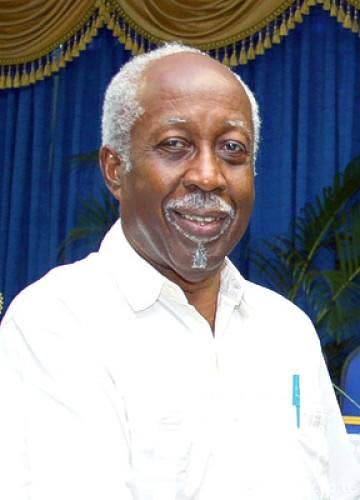The Tehran factor

AFTER MINISTER Moses’ recent statement on the Government’s interpretation of the Rio Treaty, the issues of sanctions on Venezuela and of our foreign policy positions in general are bound to assume new importance. Today I want to look at sanctions on Iran.
On May 22, replying in our Lower House to a question from the MP for Couva North, the Minister of National Security, Stuart Young, said this in part:
“It is in this House…on the 8th of March, 2019, (that) this government adopted a United Nations Security Council resolution, and adopted, under the Economic Sanctions Act,…a resolution with respect to the Islamic Republic of Iran. So I will put it very, very clearly on the record that this government will be doing absolutely nothing to facilitate in any way the passage of any Iranian-flagged ships carrying petroleum products to Venezuela.
“And, Madam Speaker, it is quite wrong, especially for those in this Parliament, to give the erroneous impression that we do not comply with UN resolutions and sanctions, which we do, and this government continues to abide by UN resolutions…”
That’s clear enough: there are UN sanctions against Iran, and the TT Government, which respects UN resolutions and TT law, will adhere to those sanctions. Therefore, no help for the Iranian vessels then on their way to Venezuela.
But are there in fact any current UN sanctions on Iran? Were there any in March 2019? If so, what?
Sanctions on Iran were first imposed in July 2006, nearly 14 years ago, because of the country’s nuclear activities and her refusal to stop them. Diplomacy continued, however, and by resolution 2231 of July 20, 2015, the UN Security Council “(welcomed) diplomatic efforts by China, France, Germany, the Russian Federation, the United Kingdom, the United States, the High Representative of the European Union for Foreign Affairs and Security Policy, and Iran to reach a comprehensive, long-term and proper solution to the Iranian nuclear issue, culminating in the Joint Comprehensive Plan of Action (JCPOA) concluded on 14 July 2015…and the establishment of the joint commission.”
The resolution also requested that “as soon as the International Atomic Energy Agency (IAEA) (has concluded) that all nuclear material in Iran remains in peaceful activities,” the IAEA director general should submit a report confirming that conclusion to the agency’s Board of Governors and the Security Council.
And the council decided that, “upon (its) receipt…of the (IAEA) report…the provisions (of seven previous UN resolutions on Iran) shall be terminated.” That termination date, known as “Implementation Day,” was January 16, 2016. The then UN secretary-general, Ban Ki-Moon, issued a statement saying he was “heartened by the lifting of sanctions on Iran.”
I have seen or heard nothing to suggest that the sanctions removed have since been reimposed, though provision for such action is made in the resolution if there is “significant non-performance (by Iran) of (its) commitments under the JCPOA.” I should note that the ban on Iran’s imports and exports of arms was retained. That ban expires in October this year.
In May 2018, President Trump announced US withdrawal from the JCPOA, and later imposed US sanctions on Iran. The goal, according to an April 2020 study by the US Congressional Research Service, is to “(compel) Iran to negotiate a revised JCPOA that takes into account US concerns beyond Iran’s nuclear program.”
US concerns. Perfectly understandable: America first (and only?). And within that framework, Trump first, particularly if action is aimed at undermining the legacy of his bete noire (I apologise for the weak pun), Barack Obama. For their part, the Europeans and other countries involved have struggled to keep the terms of the JCPOA afloat.
But now the same US, having jettisoned the JCPOA and turned its back on co-ordinated international action, says that the UN arms embargo due to end in October must remain in place, and, thumbing its nose at logic, argues that the US can act through the JCPOA because it was an original member. (Although the much-despised Obama was the US president then.) The fact that it walked away from the JCPOA two years ago is deemed irrelevant. Ex Africa semper aliquid novi, wrote Pliny the Elder more than 19 centuries ago; Africa is always coming up with something new. He should have been around for today’s White House.
And, purely for the purpose of clarification, may I end by asking: to precisely what UN sanctions on Iran was Minister Young referring on May 22? What were the UN resolution “adopted” by the Government in March last year, and the resolution on Iran “adopted” under the Economic Sanctions Act?


Comments
"The Tehran factor"